IT was a frequent task ahead of race meetings in my previous job to write individual comments for each horse in a given race, giving an assessment of their previous form and attempting to make an estimate of what could be expected in their upcoming start.
Unsurprisingly, there is much more information to work with when dealing with horses who have already run versus those making the racecourse debuts, with comments for unraced maidens requiring a certain level of guesswork.
A horse’s pedigree, purchase price (if applicable) and the stable that the newcomer hails from can be important, but there can be other clues too. Quite often those writing the individual pre-race comments will make a negative reference about a horse wearing a form of headgear first time out, including a tongue-tie.
Anecdotally, that does make some sense. Rightly or wrongly, fitting a tongue-tie before a horse has ever competed can arguably give the impression that the runner’s breathing might be somewhat suspect.
As explained succintly by my colleague Helen Sharp in a recent edition of the Horse Sense section of these pages, tongue-ties can sometimes be fitted in a bid to stop horses swallowing their tongue or flipping their palate. As horses inhale and exhale while galloping, the upper airway must be wide and free from obstruction, so the tongue-tie secures the horse’s tongue down and forward in the mouth, meaning they cannot push up on the palate or get over the bit.
Helpful tool
It must be said that not all horses who wear tongue-ties have wind issues. This is a commonly used piece of equipment. From a punters’ point of view, is it possible that the fitting of a tongue-tie on debut in fact shows the trainer having a proper handle on what their horse requires in order to be at their best? That they are covering all the bases to get the best possible result?
While all cases with horses must be treated on their own merits, the stats paint an interesting picture about the record of horses wearing a tongue-tie first time out.
In short, it is anything but a positive strategy to blindly back horses debuting in this form of headgear.
When zoning in on Irish and British maidens or novice races on the flat since January 1st 2013, a total of 944 runners have made their introduction in a tongue-tie. Over 95% of them have been beaten. A €1 stake on each of tongue-tied newcomers would have returned a loss of €344.34.
Additionally, judged by these runners’ SPs, the market would have expected 62 winners but there were just 47. Poor returns.
Even if these runners are worth opposing on their first starts, does a debut tongue-tie point to anything more significant about their ability to win in the long term?
It can be done
There are certainly cases of smart horses starting out their careers with this breathing aid applied on debut. Look no further than 2016 French 2000 Guineas/Sussex Stakes winner The Gurkha, who finished third on his Leopardstown debut when fitted with a tongue strap.
He is not the only Aidan O’Brien-trained performer to deliver big-race success after beginning his track career in this type of equipment. A year after The Gurkha, Moyglare Stakes and Prix Jean-Luc Lagardere-winning stablemate Happily sported a tongue-tie on debut - and for most of her career - while the beautifully bred Clemmie struck in that season’s Cheveley Park Stakes with a similar profile in terms of headgear.

Away from Ballydoyle, this season’s Derby third White Birch is another example of a quality type who has raced in a tongue-tie throughout his career. Both he and Clemmie, like The Gurkha and Happily, were beaten on their introductory runs. Letsbefrankaboutit, in a similar boat, looks a massive player in today’s Round Tower Stakes at the Curragh.
All things considered, the reality is that the vast majority of horses in the population are not blessed with the same sort of talent as those Group 1-level performers. A broader look at the overall horse pool would shed more light on the possible long-term forecasts to be taken from wearing a tongue-tie first time up.
In order to do this, every horse who wore a tongue-tie on debut in an Irish or British flat maiden or novice race in 2019 and 2020 was assessed, with 177 runners falling into this category.
Ratings sample
These horses’ individual Timeform profiles were examined, with the highest Timeform rating they have ever run to on the flat in their career being noted (factoring in any performances listed on the Timeform database). These peak performance figures were calculated to create an average peak rating of horses who started out in tongue-ties.
Comparing these averages to the remainder of the horse pool, who have not worn a tongue-tie on debut, was much tougher. Though not a perfect comparison, the average rating of all horses currently in training in Ireland was calculated to have a figure to reflect against the tongue-tied debutants.
Given we are looking solely at the very best performances of the tongue-tied newcomers - disregarding the fact that they could easily have regressed and could hold much lower official ratings at present - there was a chance that the tongue-tied runners may present an inflated average in comparison to an official ratings metric. That did not prove to be the case, though.
In summary, the average official rating of a flat horse trained in Ireland at present is 70, but the average career-best performance of a horse who debuted in a tongue-tie, according to Timeform ratings, was 65 in the sample period of 2019 and 2020. That means a gap of 5lb between tongue-tied newcomers and the total horse population with a handicap mark.
Tough at the top
Just one horse among the 2019/20 debutants in a tongue-tie achieved a Timeform rating above 110 - Trossachs, who actually never held an official Irish mark higher than 102.
There were 12 of the 177 runners in this category who posted a top Timeform rating of between 100 and 109. However, only one of these managed an official domestic rating of better than 103 and seven of the 12 never managed to race with an official rating of 100 or more on home soil (some were sold abroad).
Good horses can emerge from anywhere, and the exploits of a number of high-class performers prove that wearing a tongue-tie first time out is not necessarily an inhibitor to group-race riches. All things considered, however, the overall landscape suggests it may not be the best of starting points.
The next time you read a pre-race comment referring to the application of this equipment on debut, it’s probably prudent to take note.
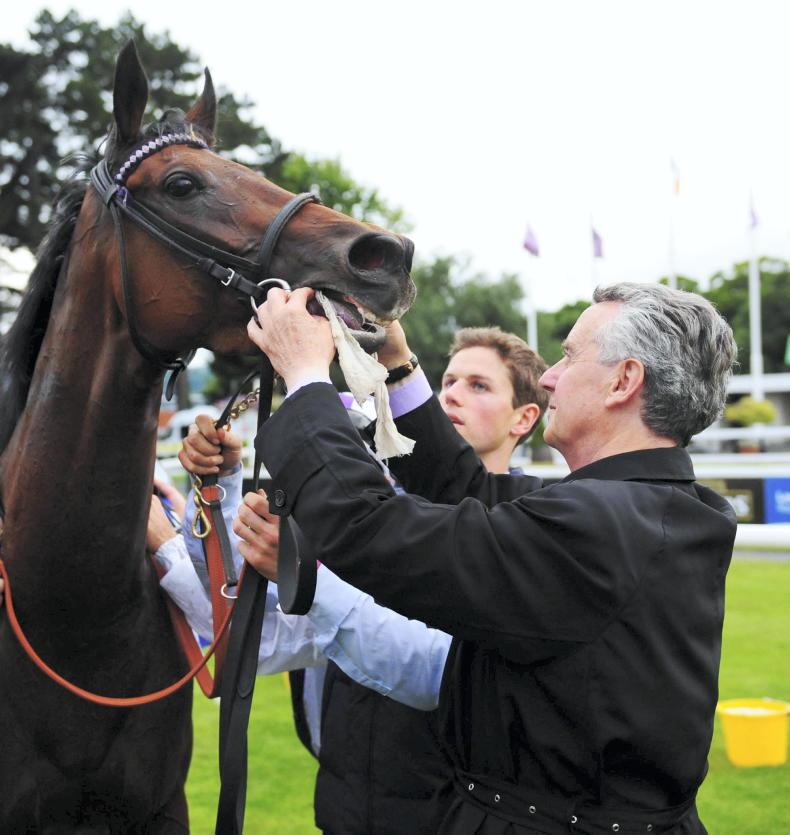

 This is a subscriber-only article
This is a subscriber-only article
 It looks like you're browsing in private mode
It looks like you're browsing in private mode




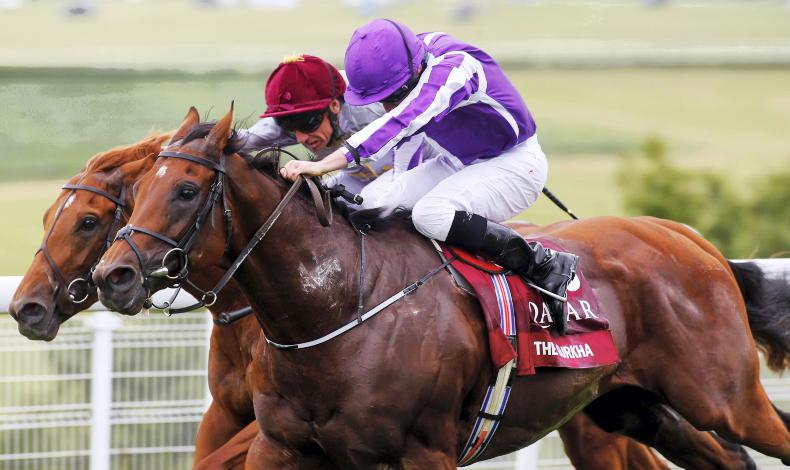



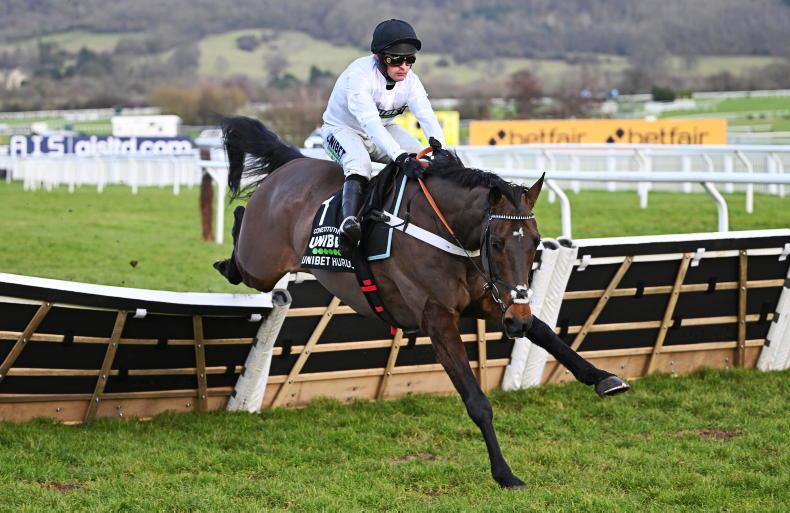
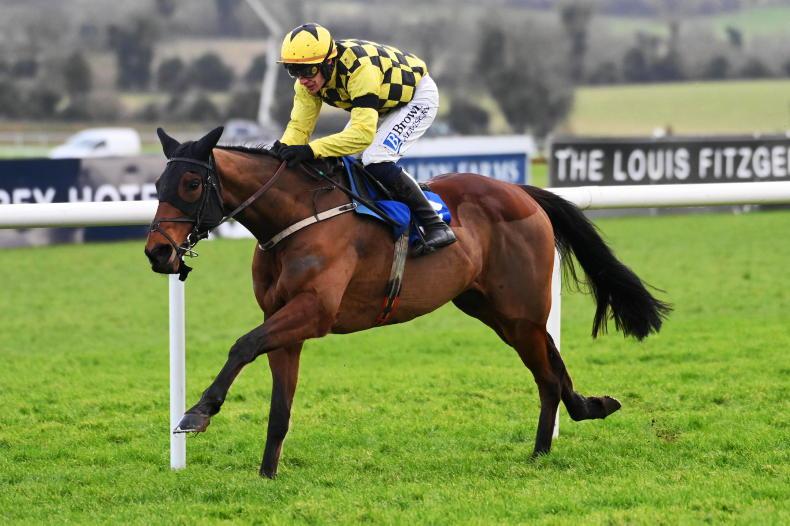
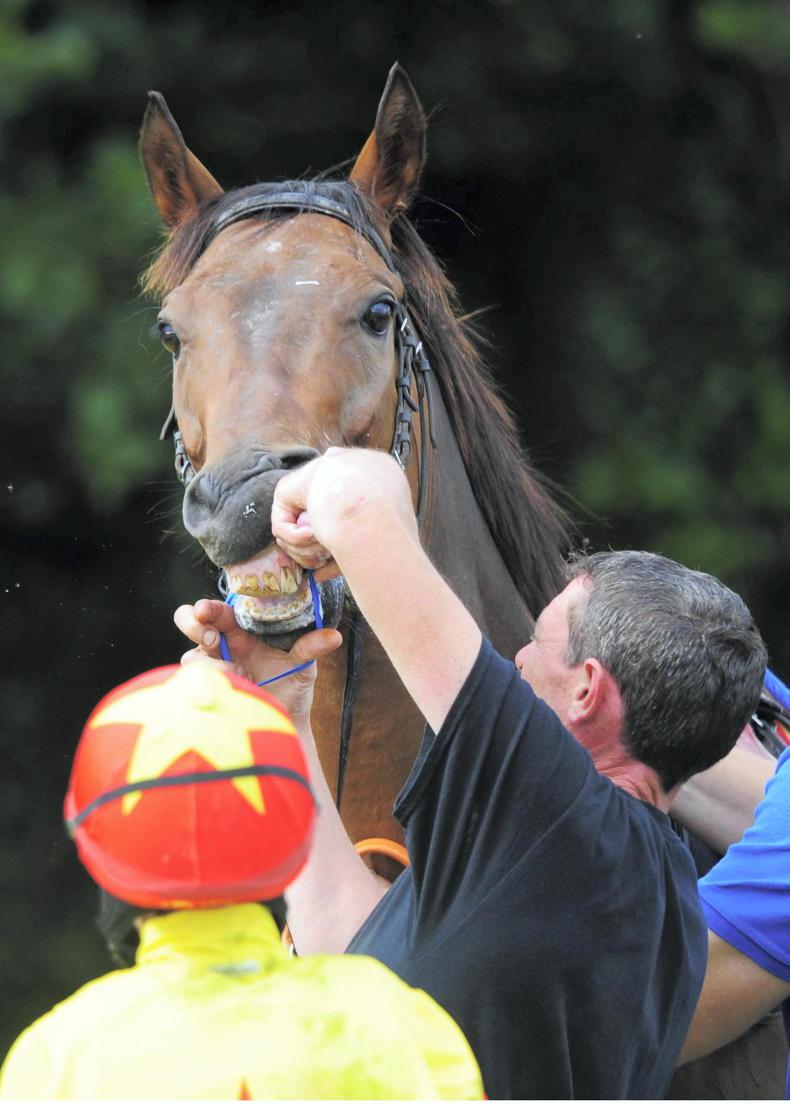
SHARING OPTIONS: